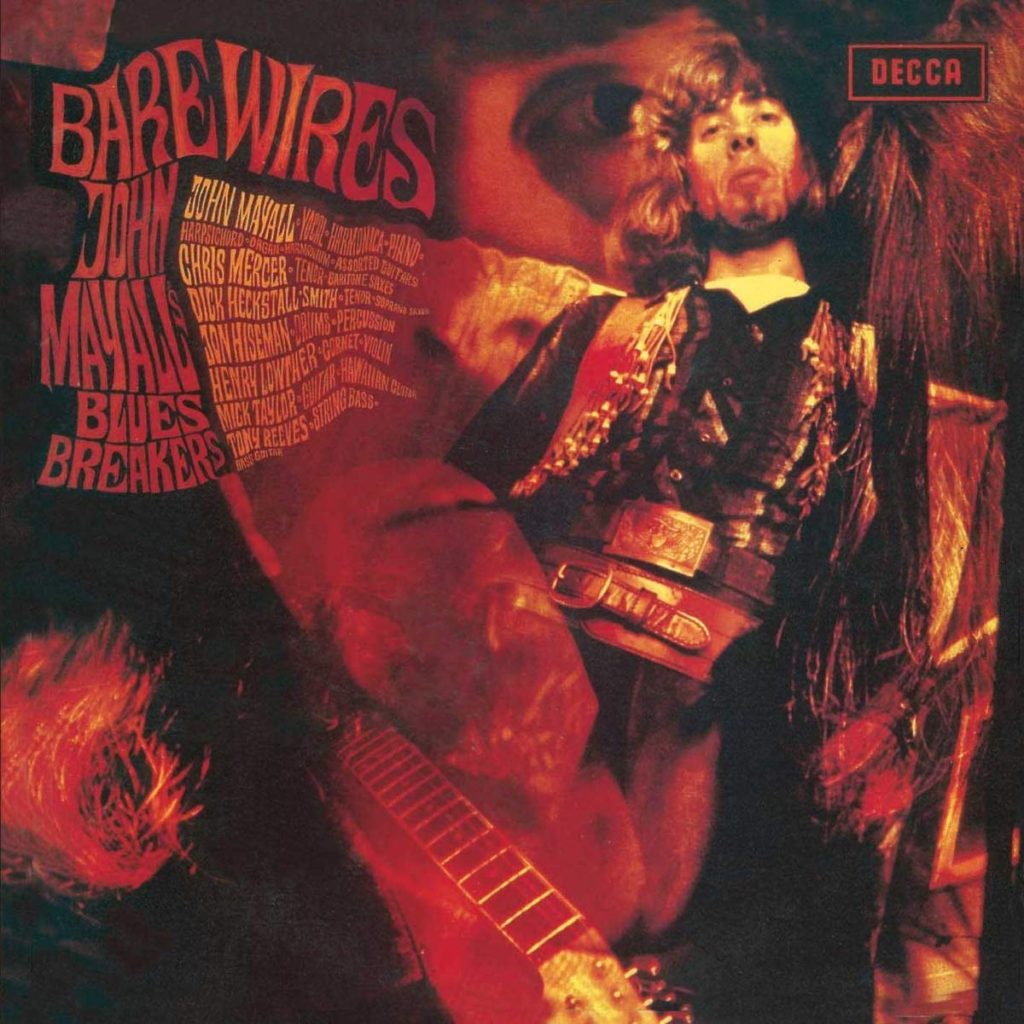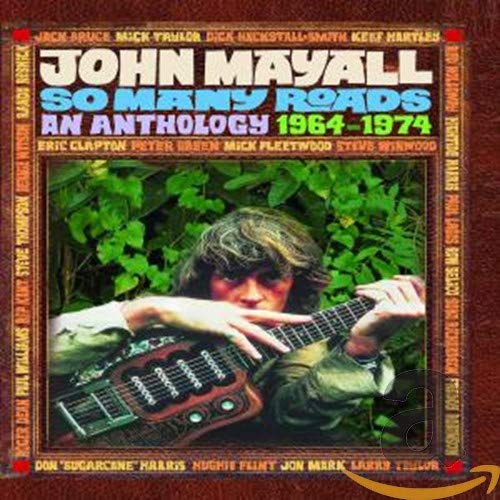Bare Wires was the fourth and final studio album of John Mayall’s Bluesbreakers, released in June 1968. It was (arguably) the Bluesbreakers at their absolute best, their most creative, and their most original. But it was also a step away from the pure blues that had defined Mayall’s previous work, with elements of jazz and psychedelia very much in evidence. It was recorded by a new line up: Dick Heckstall-Smith, Jon Hiseman and Tony Reeves all sharing the same jazz background and this really comes through. But of course Mayall and Mick Taylor keep (at least one foot) firmly in the blues! It is perhaps not as well-known today as ‘Blues Breakers with Eric Clapton’ (the Beano album), which is a shame, but this is an outstanding album, and one that is very much worth checking out!
John Mayall continually changed Bluesbreakers’ personnel throughout the 1960s, but the musicians who recorded Bare Wires started to assemble in mid-1967, with Chris Mercer (tenor saxophone), Mick Taylor (guitar) and Dick Heckstall-Smith (tenor and soprano saxophones) all signing up between May and August 1967. These were joined by Tony Reeves (bass) and Jon Hiseman (drums) in early 1968. Some of these musicians had worked together in previous projects: Reeves, Hiseman and Heckstall-Smith had played with the New Jazz Orchestra, with Reeves and Hiseman appearing on the Western Reunion London 1965 album, whilst Hiseman and Heckstall-Smith had previously played with Graham Bond.


